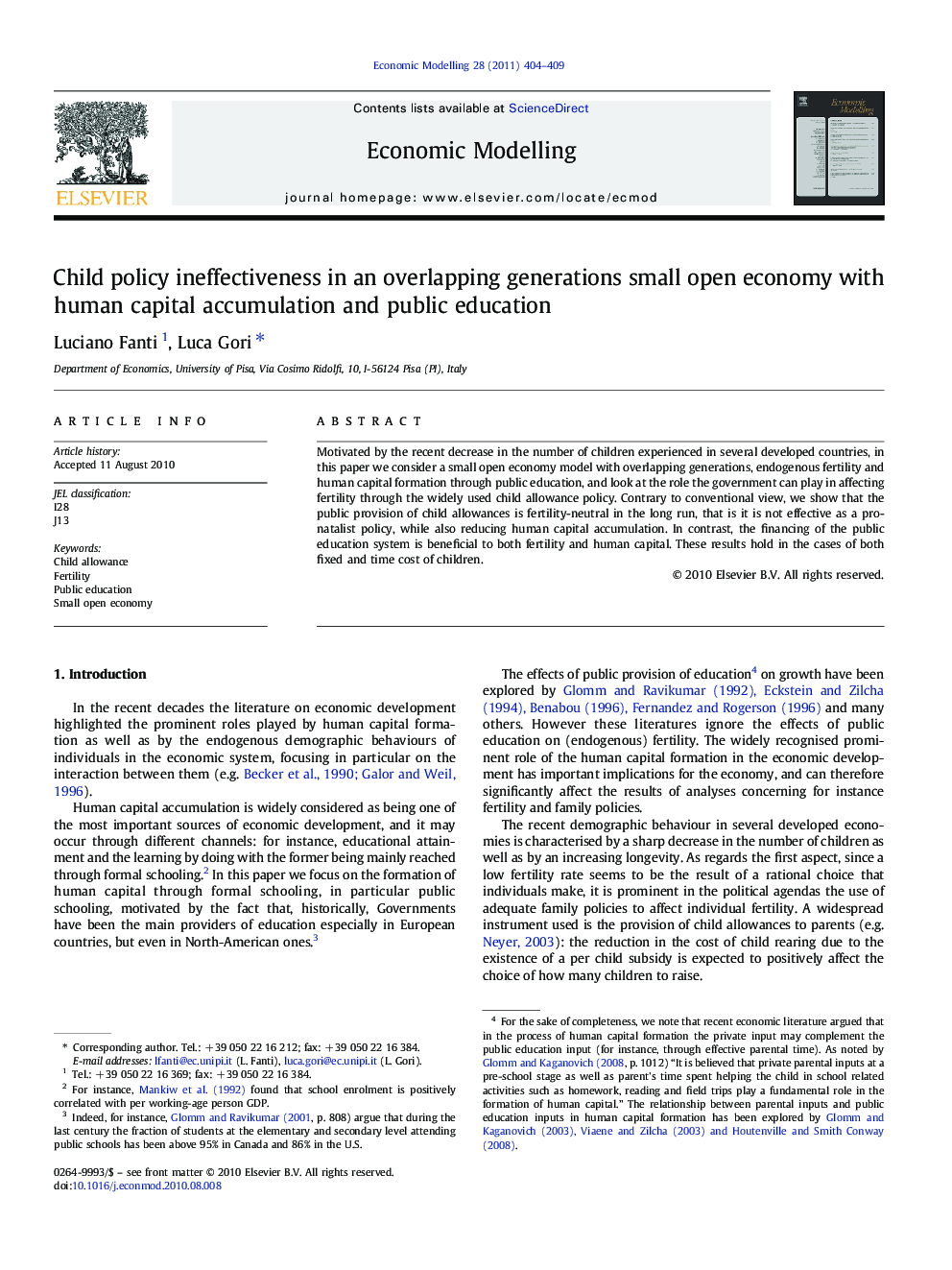| Article ID | Journal | Published Year | Pages | File Type |
|---|---|---|---|---|
| 5055802 | Economic Modelling | 2011 | 6 Pages |
Motivated by the recent decrease in the number of children experienced in several developed countries, in this paper we consider a small open economy model with overlapping generations, endogenous fertility and human capital formation through public education, and look at the role the government can play in affecting fertility through the widely used child allowance policy. Contrary to conventional view, we show that the public provision of child allowances is fertility-neutral in the long run, that is it is not effective as a pro-natalist policy, while also reducing human capital accumulation. In contrast, the financing of the public education system is beneficial to both fertility and human capital. These results hold in the cases of both fixed and time cost of children.
